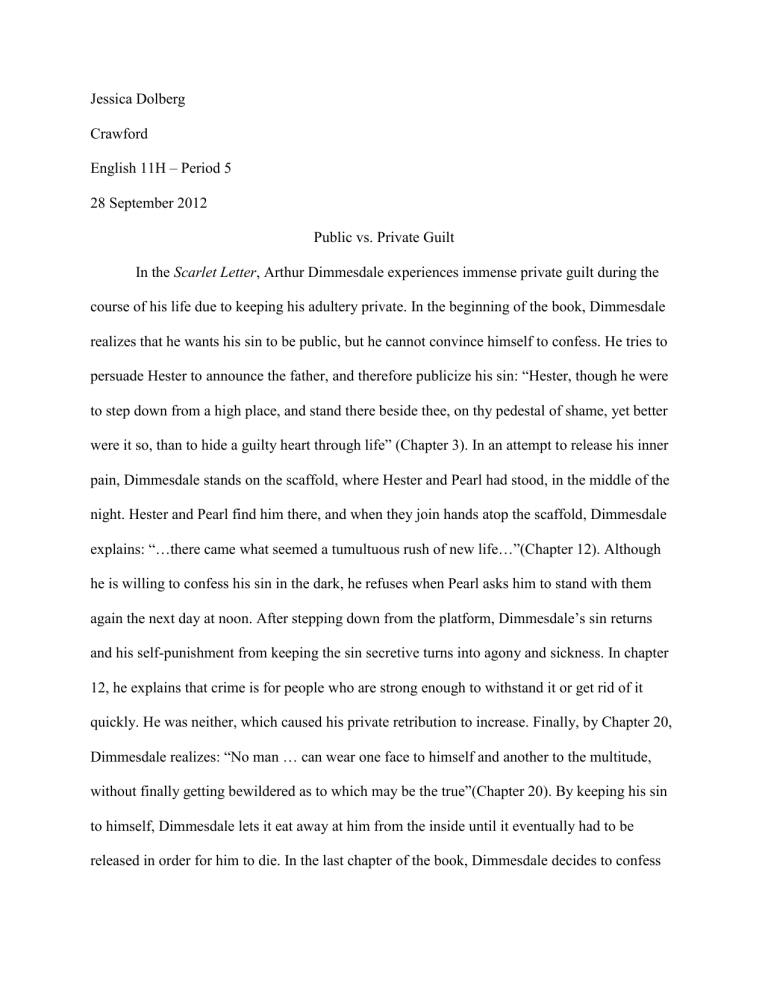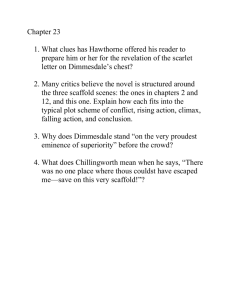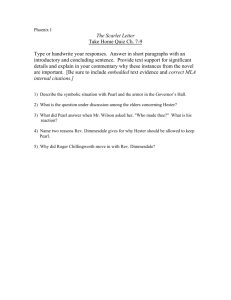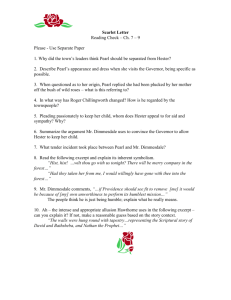Jessica Dolberg Crawford English 11H – Period 5 28 September

Jessica Dolberg
Crawford
English 11H – Period 5
28 September 2012
Public vs. Private Guilt
In the Scarlet Letter , Arthur Dimmesdale experiences immense private guilt during the course of his life due to keeping his adultery private. In the beginning of the book, Dimmesdale realizes that he wants his sin to be public, but he cannot convince himself to confess. He tries to persuade Hester to announce the father, and therefore publicize his sin: “Hester, though he were to step down from a high place, and stand there beside thee, on thy pedestal of shame, yet better were it so, than to hide a guilty heart through life” (Chapter 3). In an attempt to release his inner pain, Dimmesdale stands on the scaffold, where Hester and Pearl had stood, in the middle of the night. Hester and Pearl find him there, and when they join hands atop the scaffold, Dimmesdale explains: “…there came what seemed a tumultuous rush of new life…”(Chapter 12). Although he is willing to confess his sin in the dark, he refuses when Pearl asks him to stand with them again the next day at noon. After stepping down from the platform, Dimmesdale’s sin returns and his self-punishment from keeping the sin secretive turns into agony and sickness. In chapter
12, he explains that crime is for people who are strong enough to withstand it or get rid of it quickly. He was neither, which caused his private retribution to increase. Finally, by Chapter 20,
Dimmesdale realizes: “No man … can wear one face to himself and another to the multitude, without finally getting bewildered as to which may be the true”(Chapter 20). By keeping his sin to himself, Dimmesdale lets it eat away at him from the inside until it eventually had to be released in order for him to die. In the last chapter of the book, Dimmesdale decides to confess
his sin to everyone while standing upon the scaffold because he is aware that his judgment day is quickly approaching. Dimmesdale rips open his shirt to reveal the A that had been burnt into his chest. He alludes to the fact that the townspeople had looked down upon Hester because she had the scarlet letter, yet he was just as guilty without their knowledge: “But there stood one in the midst of you, at whose brand of sin and infamy ye have not shuddered!” (Chapter 24). Although
Dimmesdale suffers from private guilt throughout the book, accepting his guilt publically finally redeems him.




